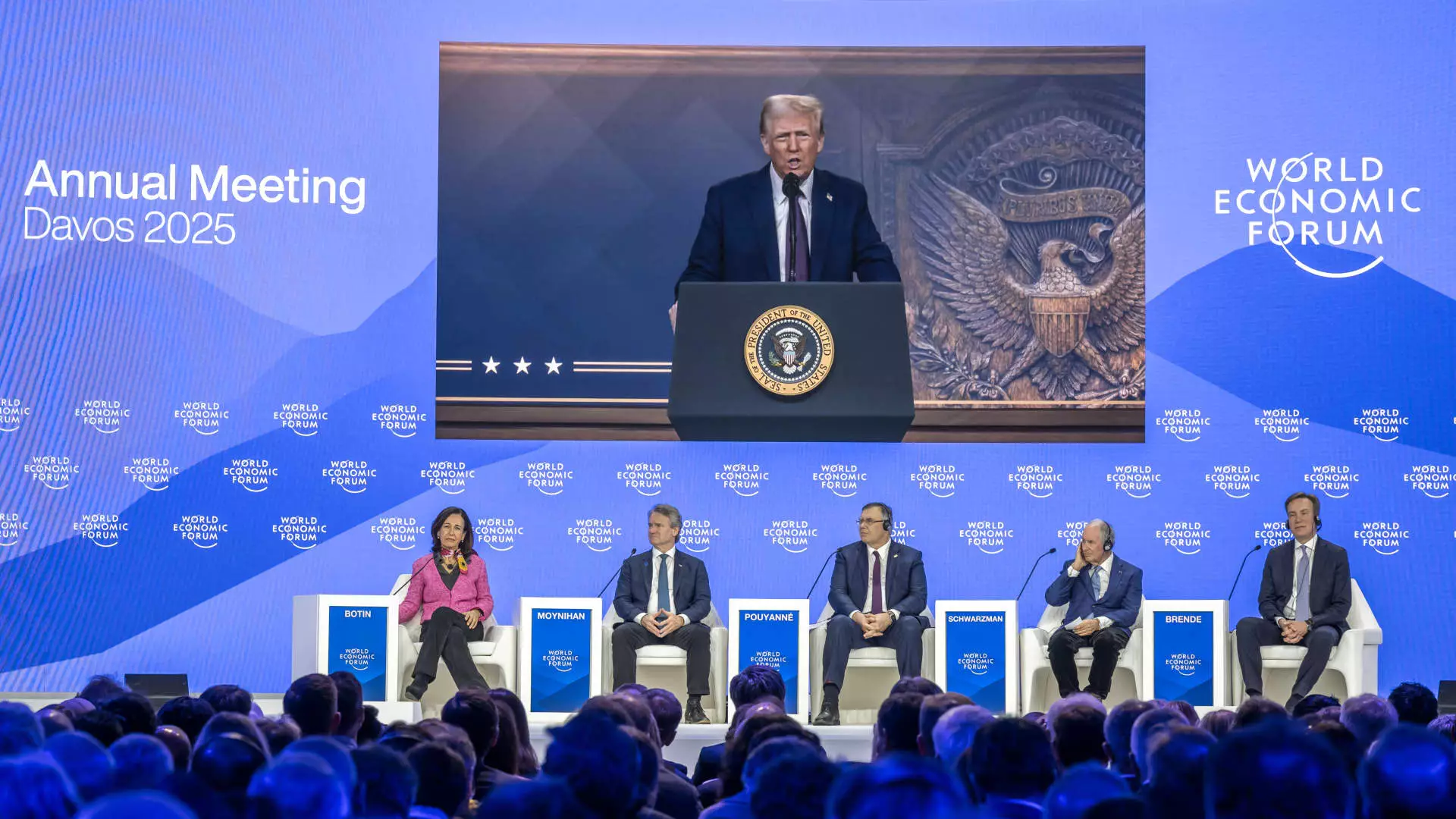In a recent appearance at the World Economic Forum in Davos, former President Donald Trump reignited a contentious narrative regarding the alleged political bias of major banking institutions in the United States. During a question-and-answer session, he directed pointed criticism at two prominent banking executives: Brian Moynihan of Bank of America and Jamie Dimon of JPMorgan Chase, suggesting that their institutions are not inclusive of conservative clients. This accusation taps into a broader campaign theme as Trump gears up for the 2024 election.
Trump’s Allegations: A Call for Inclusivity
Trump’s remarks, delivered via video link, struck a familiar chord among his supporters who believe they have faced exclusion from mainstream institutions. “I hope you start opening your bank to conservatives,” Trump stated, reflecting a persistent grievance among certain factions of the political right. The implication was clear: he views the actions of these CEOs as symptomatic of a wider trend where conservative voices are marginalized in sectors ranging from finance to technology. Trump’s rhetoric often relies on populist themes that resonate with his base, framing himself as a defender of their interests against elite institutions.
While the former president’s statements may galvanize his followers, they also raise questions about the nature of banking practices in an era increasingly influenced by regulatory oversight. Moynihan and Dimon, confronted with Trump’s accusations, did not directly engage in a rebuttal during the public exchange, opting instead to sidestep immediate confrontation. Both banks, through official statements, categorically denied any political bias, asserting their commitment to serving a diverse clientele that spans the political spectrum.
The context of Trump’s allegations is crucial for understanding the complexities at play. Following the 2008 financial crisis, U.S. regulators implemented strict measures aimed at reducing risks associated with money laundering and fraud. This regulatory environment has, over time, pressured banks to sever ties with clients in high-risk industries, such as payday lending and firearms, which has occasionally led to accusations of discrimination.
The dilemma underscores a fundamental tension within American finance: how do banks balance compliance with regulations while maintaining an inclusive approach to clients with diverse viewpoints? Both Bank of America and JPMorgan Chase have publicly maintained that their client policies are not predicated on political affiliations. They assert that account closures are often the result of legitimate business practices that align with regulatory requirements.
For instance, claims made by Kansas Attorney General Kris Kobach allege that Bank of America shut down the accounts of various religious organizations. However, the bank’s responses have highlighted systematic reasons for these account terminations, asserting that they are related to compliance issues rather than political motivations.
The ongoing discourse around banking practices and political affiliations reflects a larger societal debate about freedom of expression and the perceived threats from corporate entities wielding substantial influence. Influential voices in Trump’s camp, such as venture capitalist Marc Andreessen, have echoed his sentiments, alleging a pattern of de-banking startups and entrepreneurs based on ideological divides. This commentary emphasizes a growing fear among some conservatives that financial institutions may act as gatekeepers, effectively silencing dissenting political views.
However, the assertions made by Trump and his allies require a critical examination of the evidence. To what extent can we attribute account closures to political discrimination versus legitimate business policies? Insights from banking executives suggest a complex interplay of risk management strategies, where institutions must navigate the treacherous waters of compliance and public perception.
In light of these challenges, it is worth considering how political rhetoric interacts with actual banking practices. Are claims of widespread discrimination among banks a genuine reflection of corporate actions, or are they a product of a narrative designed for political mobilization? The answers are nuanced, underscoring the importance of clear communication and transparency from financial institutions.
As the 2024 election cycle looms, expect financial institutions to remain embroiled in political debates, especially as figures like Trump assert their influence over public discourse. The banking landscape in America is marked by complexities that underpin the political climate. While major banks like Bank of America and JPMorgan Chase assert their commitment to inclusivity, their past actions and the regulatory environment will continue to fuel discussions around bias in the financial sector.
In essence, the clash between Trump and America’s banking leaders highlights profound divisions within society, forcing institutions to reconsider how they engage with varying political sentiments while adhering to regulatory frameworks. The evolution of this debate will be a crucial part of the financial and political landscape as America navigates the turbulent waters of democracy and corporate responsibility.

